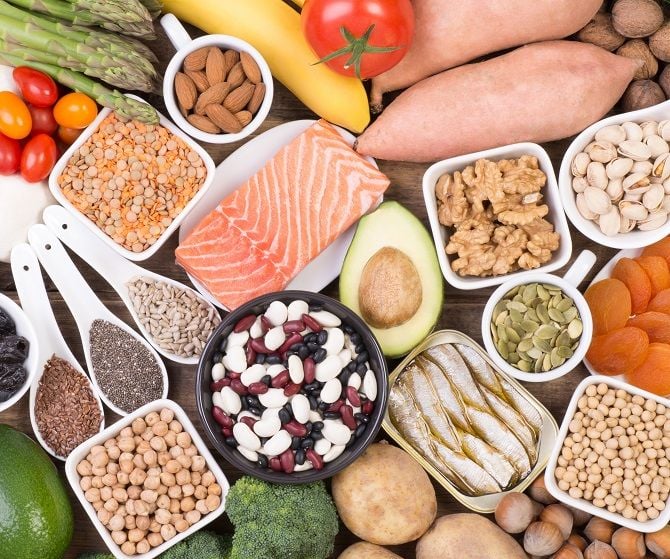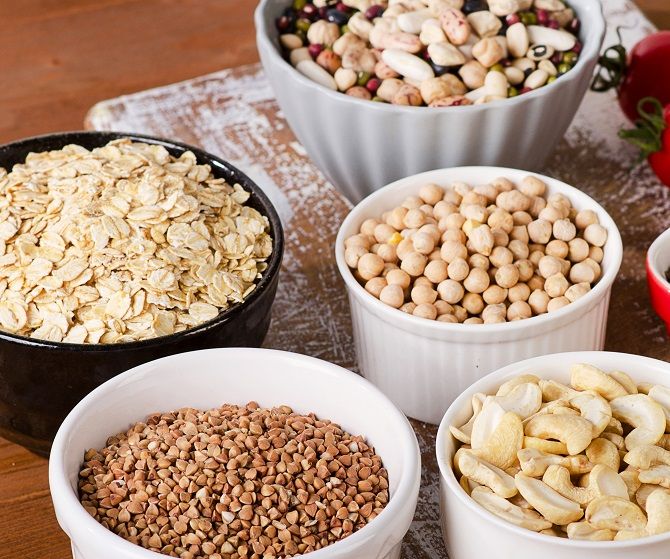By Will Hawkins
Is dark chocolate good for you?
While a healthy diet is important, that doesn't mean the occasional treat is out of the question. Of course, if you can find an indulgent snack that's also good for your health, so much the better.
Dark chocolate could be just the thing you're looking for.
Along with red wine, it's a food that on the face it should be bad for you, but actually has a few health benefits when consumed in moderation.
So is dark chocolate good for you?
Before we start, we need to quickly answer another important question.
What is 'dark' chocolate?
The most important thing you need to know about dark chocolate is that unlike milk and white chocolate, it's made without milk.
Under UK law, it must contain a minimum of 35% cocoa solids and at least 18% of these must be cocoa butter. You can find all this information in the ingredients.
Chocolate bars with a very high cocoa content aren't to everyone's taste, as they can have a bitter aftertaste, but bars of around 70% are very popular. This is the level you need to be at to really feel the health benefits of dark chocolate. Stronger chocolate can also be used in cooking, as it goes well in sauces with meats such as venison.
Let's look at some of the biggest claims about the health benefits of dark chocolate.
1. Dark chocolate is a powerful antioxidant
Cocoa powder is regarded by nutritionists as an excellent antioxidant. This means it's great at fighting free radicals that cause damage to cells in your body. These free radicals are linked to degenerative diseases such as diabetes, dementia and cancer.
As dark chocolate has a higher cocoa content, it's a better antioxidant than white or milk chocolate. Two of the most effective antioxidants in dark chocolate are plant-based compounds called flavonols and polyphenols. The higher the cocoa content of your chocolate, the more antioxidants it contains.
In fact, some studies even suggest that dark chocolate is a better antioxidant than other so-called 'superfoods', such as blueberries.
For the sake of balance, a 2012 review of the studies into this topic suggested that conclusions had been drawn from experiments that were too short (no longer than 8 weeks). More research is needed over a longer period to determine the full extent of dark chocolate's antioxidant abilities.
2. Dark chocolate is good for your heart
Studies suggest that flavonols can lower your blood pressure and improve blood flow to your heart and brain. This reduces the risk of blood clots that can lead to strokes and heart disease.
Flavonols do this by relaxing your arteries and allowing blood to flow more easily. They also help to prevent white blood cells from sticking to artery walls, one of the factors that leads to blockages.
It's worth remembering that while this is a positive, the effect from dark chocolate alone is quite small.
3. Dark chocolate improves your cholesterol balance
It's important to understand that not all cholesterol is bad. There's LDL cholesterol (low density lipoprotein), which is what clogs your arteries, but there's also HDL cholesterol (high density lipoprotein), which helps remove LDL cholesterol from your body and can protect your long-term health.
Simply put, dark chocolate increases your HDL cholesterol and decreases your LDL cholesterol. While it does contain some saturated fat, it also contains the same sort of unsaturated fat found in olive oil. a staple of the Mediterranean diet that is regarded as one of the healthiest in the world.
Dark chocolate also contains more soluble fibre than other types of chocolate, so you'll feel fuller for longer and won't feel tempted to snack on unhealthy foods that will raise your cholesterol.
4. Dark chocolate improves brain function
Because flavonols can increase blood flow to the brain, some studies suggest that dark chocolate can improve cognitive function and lower your risk of brain-related medical conditions, such as dementia and strokes.
However, more research is needed to prove beyond doubt that it is indeed the flavonols that cause this effect.
5. Dark chocolate is better for your blood sugar than other chocolate
Generally speaking, chocolate with a higher cocoa content has a lower sugar content. As dark chocolate has the highest cocoa percentage, and therefore the lowest amount of added sugar, it doesn't cause as big a spike in your blood sugar as milk or white chocolate.
Some studies have even suggested that a moderate amount of dark chocolate can improve your insulin sensitivity and lower your risk of type 2 diabetes.
6. Dark chocolate protects your skin
Many of the antioxidants in dark chocolate, including flavonols, phenols and catechins, are thought to protect your skin against sun damage, improve blood flow to your skin, keep it hydrated and increase skin density.
We need to qualify this by pointing out that one study suggested you'd need to eat dark chocolate in moderation for up to 12 weeks before enjoying your beach holiday in order to feel any benefit. It's certainly not a replacement for sun cream, either!
7. Dark chocolate can reduce stress
Dark chocolate contains tryptophan, which is an amino acid your brain uses to make serotonin, otherwise known as the 'happy hormone'. A serotonin boost will put you in a good mood, but can you really credit dark chocolate for this?
Sadly, the biggest study to cite dark chocolate as a stress-buster was funded by a chocolate manufacturer, so it should be taken with a pinch of salt.
Of course, chocolate still contains a lot of calories, and it's not a good idea to use comfort eating as a way to cope with stress.
Nutritional value of dark chocolate
100g of 70-85% dark chocolate contains:
Calories: 546
Fat: 31g
Saturated fat: 19g
Sugar: 48g
Fibre: 7g
You'll also find:
- 67% of your recommended daily iron
- 58% of your recommended daily magnesium
- 89% of your recommended daily copper
- 98% of your recommended daily manganese
- Smaller amounts of potassium, phosphorus, zinc and selenium

